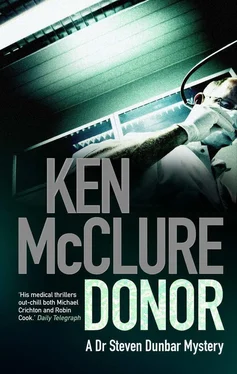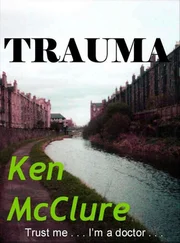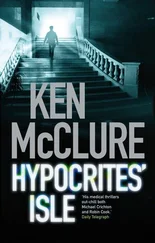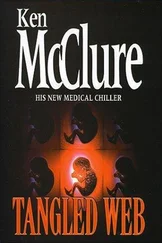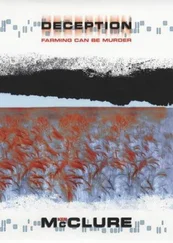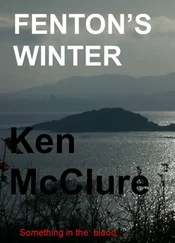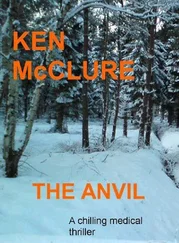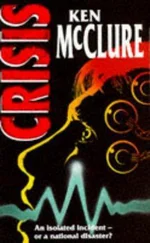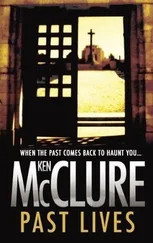Ken McClure - Donor
Здесь есть возможность читать онлайн «Ken McClure - Donor» весь текст электронной книги совершенно бесплатно (целиком полную версию без сокращений). В некоторых случаях можно слушать аудио, скачать через торрент в формате fb2 и присутствует краткое содержание. Жанр: Триллер, на английском языке. Описание произведения, (предисловие) а так же отзывы посетителей доступны на портале библиотеки ЛибКат.
- Название:Donor
- Автор:
- Жанр:
- Год:неизвестен
- ISBN:нет данных
- Рейтинг книги:4.5 / 5. Голосов: 2
-
Избранное:Добавить в избранное
- Отзывы:
-
Ваша оценка:
- 100
- 1
- 2
- 3
- 4
- 5
Donor: краткое содержание, описание и аннотация
Предлагаем к чтению аннотацию, описание, краткое содержание или предисловие (зависит от того, что написал сам автор книги «Donor»). Если вы не нашли необходимую информацию о книге — напишите в комментариях, мы постараемся отыскать её.
Donor — читать онлайн бесплатно полную книгу (весь текст) целиком
Ниже представлен текст книги, разбитый по страницам. Система сохранения места последней прочитанной страницы, позволяет с удобством читать онлайн бесплатно книгу «Donor», без необходимости каждый раз заново искать на чём Вы остановились. Поставьте закладку, и сможете в любой момент перейти на страницу, на которой закончили чтение.
Интервал:
Закладка:
This in turn begged the question of how many experiments there had been. Were the two failures exceptions to the rule? Had there been lots of successful animal transplants that hadn’t come to light? There was no way of knowing without access to Ross’s research records. There was, of course, the nagging possibility that he was completely and utterly mistaken about the whole thing. Ross had done nothing wrong. There had been no animal transplant experiments. The two kids had suffered from some unknown, non-specific form of tissue rejection, however unlikely the coincidence, and the whole damned investigation had been a mistake from the start.
Dunbar knew he’d have to decide soon which seemed the likelier; the decision about a break-in at Vane Farm was going to be his. He’d be putting himself and Sci-Med at risk, and he needed to feel easier in his mind about the justification for doing so. He sought some resolution of the problem in thinking about the other odd things that had happened at Medic Ecosse.
Going back to the very beginning, he still thought it peculiar and out of character that Ross had accepted the Scottish Office cuts in research funding without much more than a whimper of protest. He’d assumed at the time that Ross must have been promised alternative funding, but if that were so where was it coming from? The fact that he hadn’t been able to find any trace of it didn’t necessarily mean it didn’t exist, but if it didn’t — and even if it did — it was possible that Ross had some other reason for staying on.
Pursuing that line of thought, he wondered whether Ross had allowed himself to be humiliated in public because he had something going on at Medic Ecosse, something he didn’t want interrupted, something so important to him that he was prepared to lose any amount of face. Could research glory be that important to the man? Perhaps. But Ross already enjoyed an international reputation as a researcher. He didn’t need the extra kudos. He wasn’t some young, ambitious buck out to make a name for himself, who’d cut corners if need be.
The more he thought about it, the more unlikely it seemed that Ross would have risked his career and reputation, and killed two children into the bargain, for the sake of stealing a march on the opposition over the issue of animal organs for human transplant. Apart from that, he couldn’t publish the results of his work anyway without advertising his guilt. The best he could do would be to learn from them and start out on a legal programme of research, helped by facts he already knew. Seen in that light, the price seemed unfeasibly high — something Lisa had pointed out. So, if it wasn’t research glory that Ross was after, what could it be?
The obvious answer was money. There certainly seemed to be no limit to what people, at any level in society, would do if the price was right. This was a fact of life. But if money satisfied the question of motive, it obscured the crime. He couldn’t see how anything connected with animal organs for transplant could attract enough money for a man like Ross to risk everything. There was also the problem that Ross didn’t appear to be particularly wealthy. His lifestyle seemed to be roughly in keeping with his eighty-odd thousand a year salary, but of course that could be contrived. Ross was an extremely clever man. He wouldn’t do anything as crass as live beyond his means if he really was involved in something sinister.
Thinking about Ross’s earnings reminded Dunbar that he’d forgotten to ask Sci-Med for more information about Ross’s work in Geneva. It probably wasn’t relevant, but they hadn’t supplied details at the outset. He’d remind them the next time he was in contact. It was untypical of them to have left that unresolved.
Dunbar realized that if he were to implicate Ross in something steeped in self-interest he’d have to explain away Ross’s philanthropic record over transplants for NHS patients at Medic Ecosse. He’d taken on three such patients in three years when he’d been under no pressure at all to do so. The gesture would have significantly reduced profits for his unit and therefore his share of the payout under the old agreement. No one would have quibbled at Medic Ecosse drawing the line at free transplants, especially when they hadn’t been doing well financially, yet they’d taken on three.
Ingrid’s apparent ignorance about the funding of transplants for such patients was another puzzle. He’d thought she’d have been only too keen to confirm that the costs were set off against profits from Omega patients, but, although she’d finally agreed that this was probably the case, she’d behaved as if it were a novel suggestion. It would be worth investigating the funding of these patients further.
Dunbar reminded himself that he hadn’t yet got back to Clive Turner at the Children’s Hospital about the marrow puncture on Amanda Chapman. It wasn’t that he’d forgotten; he simply did not know what to tell him. Officially it had never happened. It was just another strange happening at Medic Ecosse, not terribly important in itself but, again, out of character in an organization that prided itself on efficiency. It would be silly to pretend that people did not make mistakes there, but it would be fair to say they made fewer than most.
The question he had to face up to now was the big one. Did he believe that there was enough reason to warrant a break-in at Vane Farm, with all its attendant risks? He could think of no other way of getting more information about Ross’s research work. The answer, he decided, was yes.
As he crossed one of the bridges over the Clyde, Dunbar paused to lean on the parapet and look down at the dark water swirling below. He was looking for inspiration. Would he attempt the break-in himself or would he call for assistance? He was still pondering this when he became aware of a car slowing down. He half turned and saw that it was a police Panda car; its two occupants were watching him. He returned to looking down at the water, hoping the car would move off. It didn’t. Dunbar heard the window being wound down as the car inched towards him. A Glasgow voice asked, ‘Not thinking of doing anything stupid, are we?’
Dunbar smiled at the irony of the question before turning. He said, ‘Nothing like that, Officer. Just getting some air.’
The answer seemed to satisfy the law. The car moved off.
Definitely not something stupid, thought Dunbar. He had enough egg on his face already over this assignment. He’d ask Sci-Med to arrange expert assistance. Macmillan had said he could stay on the case ‘a bit longer’. He wasn’t too clear what that meant.
Dunbar made his request for help to Sci-Med first thing in the morning. He also asked for information about Ross’s consultancy in Geneva. The reply simply acknowledged the requests and told him they would be dealt with as soon as possible. He should stand by.
When he got to the hospital, Dunbar told Ingrid he wouldn’t be needing her. He didn’t want her around while he investigated how the free transplant referrals had been funded. Confidentiality about the Omega patients was strict, but Ingrid, when pressed, had come up with the information that there had been three; she had also given net profit figures for their stays. Dunbar couldn’t remember whether or not she had included dates for them. He wanted to see if he could correlate these dates with the acceptance of free-transplant patients.
He found the information on Omega patients she had given him. The dates of their stays at Medic Ecosse were included. He then got out the list of free NHS referrals and checked one list against the other. He found exactly what he was looking for. The admission of each Omega patient coincided with the acceptance of a free transplant patient. This confirmed that it was possible that the Omega patients had provided cash for the transplants, but it did not tell him why Ingrid had been unsure about the correlation. She had always been fiercely protective of Medic Ecosse, so should have jumped at the chance to point out how philanthropic they had been in spending Omega cash on charity patients. It was out of character. He was missing something.
Читать дальшеИнтервал:
Закладка:
Похожие книги на «Donor»
Представляем Вашему вниманию похожие книги на «Donor» списком для выбора. Мы отобрали схожую по названию и смыслу литературу в надежде предоставить читателям больше вариантов отыскать новые, интересные, ещё непрочитанные произведения.
Обсуждение, отзывы о книге «Donor» и просто собственные мнения читателей. Оставьте ваши комментарии, напишите, что Вы думаете о произведении, его смысле или главных героях. Укажите что конкретно понравилось, а что нет, и почему Вы так считаете.
